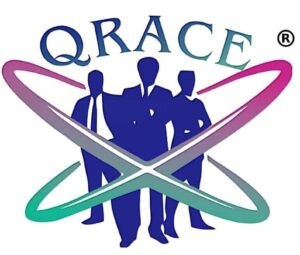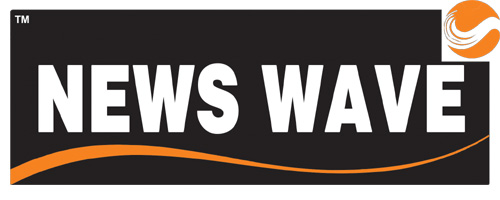Sailing into the Quantum Age: Improving Efficiency and Sustainability in the Shipping Industry and Revolutionizing Maritime Routing Optimization

Dr Kumar Gautam, Director, QRACE
Newswave @ New Delhi
Shipping is a crucial mode of transportation because it supports roughly 90% of global trade due to its high capacity, low cost, and high safety standards. Profits in the millions can be made from even the smallest cost savings in this industry.
The shipping industry is also a major offender in the fight against global warming. When compared to the world’s top carbon-emitting nations, the carbon dioxide emissions from cargo ships are roughly on par. And if the shipping industry were a country, it would be the sixth largest emitter of greenhouse gases due to its rapid expansion. There are currently no regulations in place to control the amount of carbon dioxide that ships release. As a result, it is crucial for shipping fleets to implement technical and operational strategies to lessen their impact on the environment and cut down on pollution, including the use of efficient routing optimization methods.
Logistics complexity, weather volatility, rising fuel costs, and emission concerns all present obstacles to maritime shipping optimization. In addition, there are the challenges of optimizing vessel utilization, relieving port congestion, and meeting the requirements of international regulations. Trade imbalances, information sharing among stakeholders, and technological integration are additional factors that affect efficiency. To achieve cost-effectiveness, sustainability, and competitive advantage in the shipping industry, it will be necessary to adopt new strategies, make decisions based on data, and work together with others.
Quantum computing support to maritime industry
Technology advancements are guiding the maritime industry toward a more efficient and sustainable future in an ever-changing landscape. Quantum computing principles have been incorporated into optimization techniques, which opens up the possibility of efficiently navigating much larger and more complex solution spaces than was previously possible. While linear programming, integer programming, and combinatorial classical optimization algorithms have served us well in the past, they cannot handle the complexity of modern maritime routing optimization problems with their many, often conflicting constraints. The arrival of quantum-inspired optimization heralds a new era of shipping efficiency.
Taking into account the specifics of the ship and the optimal route, this system utilizes meteorological and oceanographic data to optimize maritime routes. The success of the recommended path is dependent not only on the precision of the data but also on the accuracy of the optimization problem modeling and the appropriateness of the algorithm chosen to solve it.
Exciting developments in quantum metaheuristics have provided new avenues for effectively addressing maritime challenges. The qubit is the basic building block of quantum-inspired algorithms; by exploiting its capacity for entanglement and superposition of states, these algorithms can achieve exponential gains in computational power and information processing efficiency. There are exciting new possibilities for quantum communication and cryptography made possible by qubits’ remarkable entanglement and superposition capabilities. As a result, businesses in the maritime logistics sector are looking into quantum computing’s potential applications. As a result of the flexibility and promise offered by quantum methods, the maritime routing industry is undergoing a period of profound change.
The leading companies in the business world are investigating the application of quantum methods to maritime logistics. D-Wave partners with Ocean Network Express to devise efficient shipping routes, and a quantum-inspired algorithm for container stowage is the result of a collaboration between Navis and Xanadu. The University of Southampton and D-Wave Systems have developed an improved method of North Sea vessel routing. Quantum computing has the potential to revolutionize fleet management, streamline maritime logistics, and save the shipping industry a ton of money.
QRACE provides new approaches

Quantum computing-based optimization techniques that overcome the shortcomings of conventional methods would be of great use to the shipping industry. Quantum South, a quantum computing company, and the Quantum Research And Centre of Excellence (QRACE) have proposed an optimization algorithm based on Newton’s theory of gravity as a means to solve the difficult maritime problem. The hope is that these new approaches will be more effective than the status quo, resulting in increased profits and reduced overhead for businesses. Quantum South and QRACE, a quantum computing startup that is paving the way for a quantum Leap in technology by providing industries with previously unimaginable computational power and algorithms.
Members of the QRACE team are developing quantum methods to solve the challenges of maritime cargo ship routing. They are: Dr Kumar Gautam (Postdoc, PhD) Saaru Darshini B (B.Tech, SRM), Bhanushri Chinta (B.Tech, IIT Mandi), Vikramaditya Bisani (B.Tech, SRM), Dr Nikhil Pachauri (Postdoc, PhD), Dr G Usha (PhD), Dr Saurabh Agarwal (Postdoc, PhD), Dr Yagyadatta Goswami (PhD), Dr Shailendra Pandey (PhD), Dr Indu Tripathi (PhD), Sachin Agrawal (M. Tech, IIT Madras), Dr P. Sathyaprakash (PhD). With their combined knowledge and experience, they aim to revolutionize the way cargo ships navigate the seas, optimizing routes for efficiency and minimizing costs.
Conclusion:
The development of this algorithm is part of an effort to use the massive processing power of quantum computers to usher in a new era of efficiency in the shipping industry. Its advantages in convergence speed, diversity of solutions, robustness, simplicity, and versatility mean that it has the potential to efficiently optimize routes, reduce fuel consumption, and minimize delivery times for ships around the world by capitalizing on the principles of gravity. This algorithm is used to optimize the routes, and it is both fault-tolerant and well-suited to quick routing. As a result, it is used to cut down on delivery times and carbon emissions by analyzing various routes and settling on the most optimal one.
 News Wave Waves of News
News Wave Waves of News








